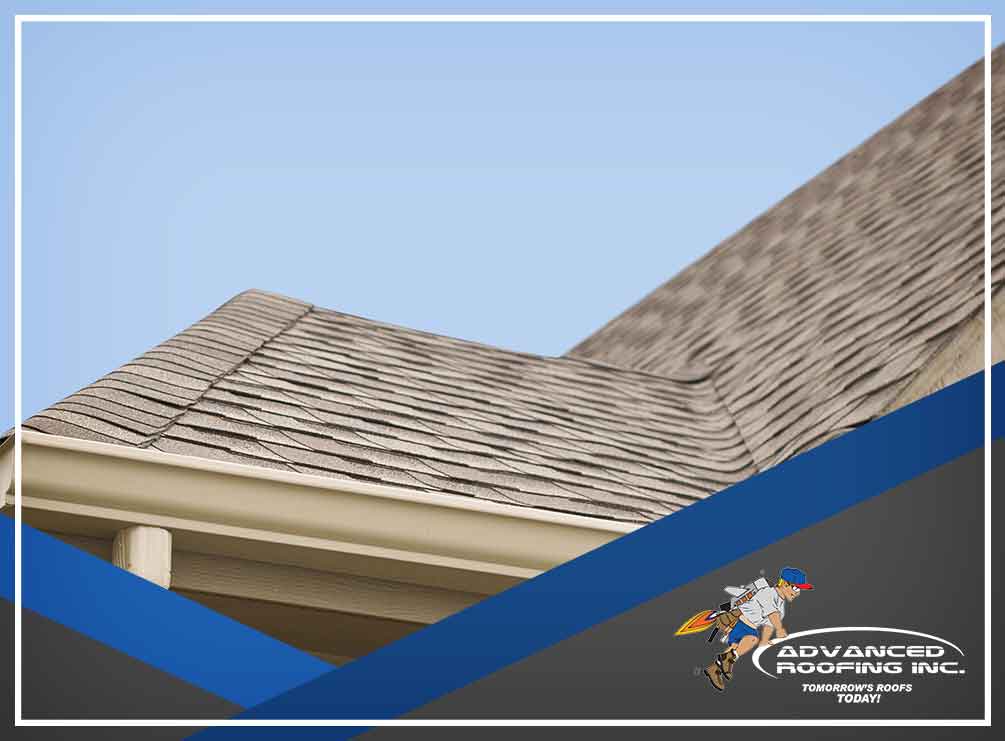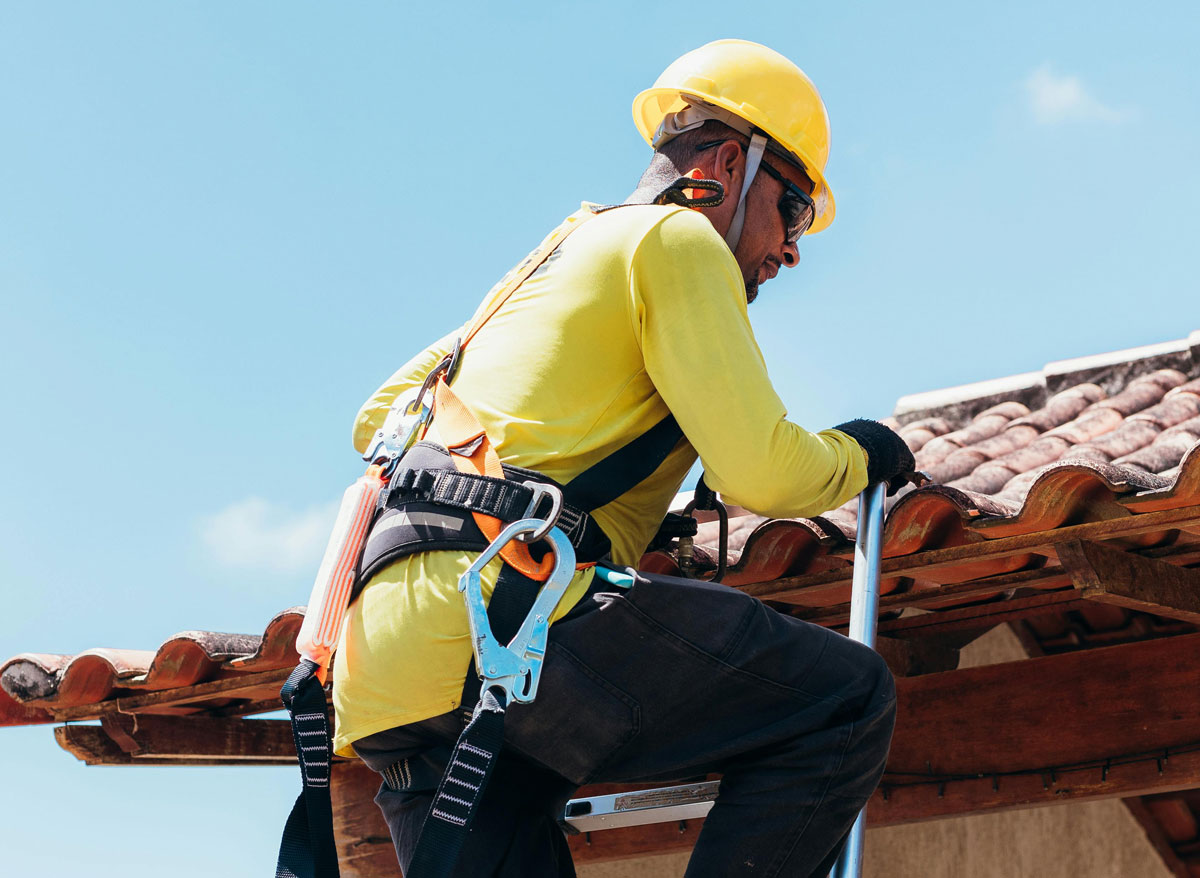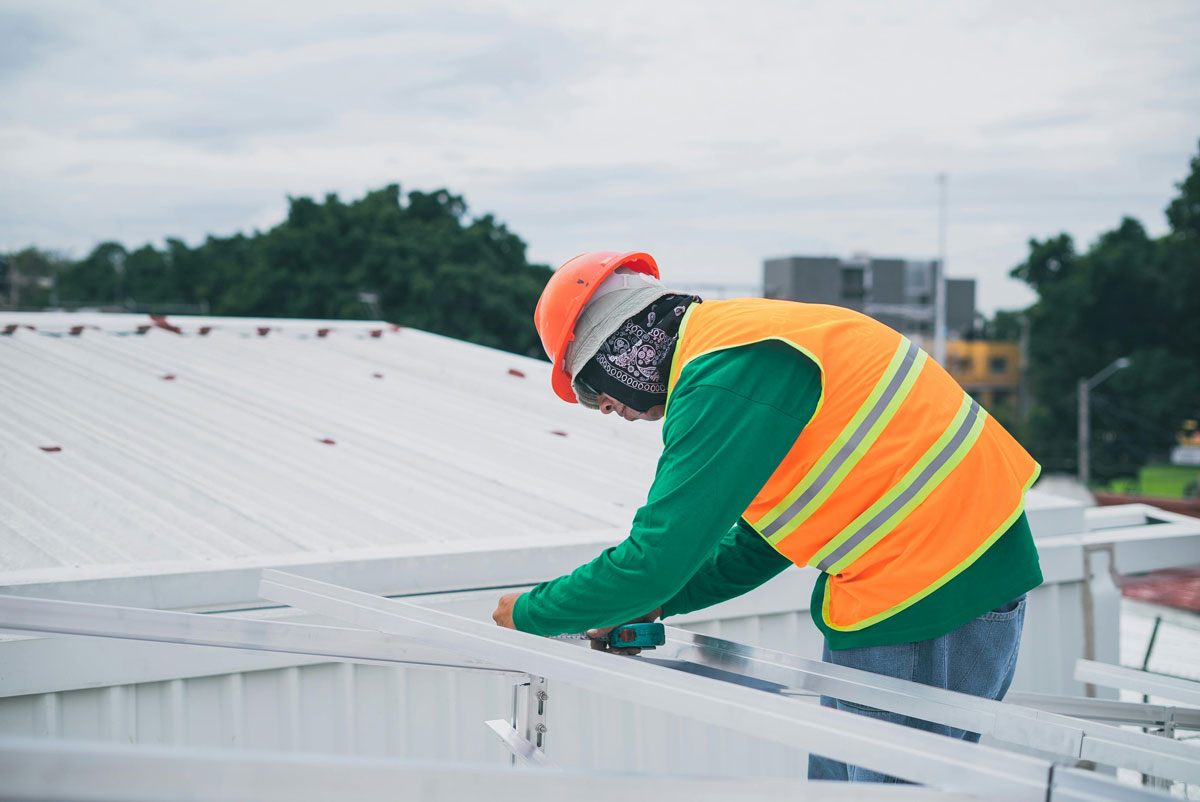Roofing underlayment or roofing paper comes in three common types:
- Asphalt-Saturated Felt (Felt Paper)
- Rubberized Asphalt
- Non-Bitumen Synthetics (Synthetic Felt Paper)
Roofing underlayment is most commonly called Felt Paper or Ice and Water Shield even though they are different underlayment materials. The underlayment is an often-unseen yet crucial component of today’s residential roofing systems. It is the layer of waterproofing material that protects the roof deck or substrate from water intrusion, in case the outer layer suffers damage. We take a closer look at the kinds of underlayment that you can get for your roof.
Asphalt-Saturated Felt
The term “roofing felt” or “felt paper” came from the first type of underlayment material, asphalt-saturated felt. The backing material is functionally similar to tar paper but saturated with asphalt instead of tar as the waterproofing ingredient. Felts were once the most popular underlayment option, but dwindling asphalt supplies made it give way to other materials. Asphalt-saturated felt adds stiffness to the roof deck, which improves its durability against impact from hailstones, airborne debris and large tree branches.
Rubberized Asphalt
Rubberized asphalt are like sheets of rubber when installed and while it does have the word asphalt in its name, it has little to no asphalt content. Similar to membrane roofing used on flat roofs, rubberized asphalt is installed on the roof deck using special adhesives. One of the main benefits of rubberized asphalt is that it is inherently flexible, which makes it ideal for climates that experience both extremely hot and cold weather. Weather is also a reason why asphalt shingles lose their granules.
The composition of rubberized asphalt varies depending on the roofing project’s requirements. Improved waterproofing, fiberglass reinforcement and sound absorption are just a few of these features. Similar to commercial flat roof repair, rubberized asphalt can be patched in case a leak occurs, but the outer roofing layer will have to be partially removed.
Non-Bitumen Synthetics
Modern roofs are likely installed with non-bitumen synthetic underlayment. These newer materials are made from hard-wearing plastics such as polyethylene or polypropylene and has seen use from food-grade containers to plastic models. Non-bitumen synthetics display exceptional strength, elasticity and waterproofing, as well as inherent resistance to fungal growth. Roofing systems from manufacturers like GAF and CertainTeed feature this as the standard underlayment material.
To learn more about underlayment materials, or if you need help from local roof repair contractors, call Advanced Roofing Inc. today at (630) 473-3008. You can also fill out our contact form to schedule a free, no-obligation estimate. We serve Naperville, IL and nearby areas in Illinois.







